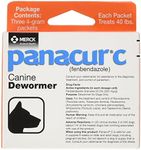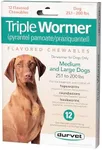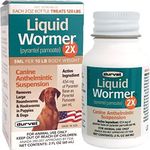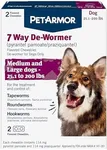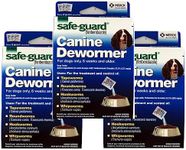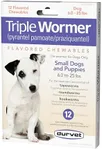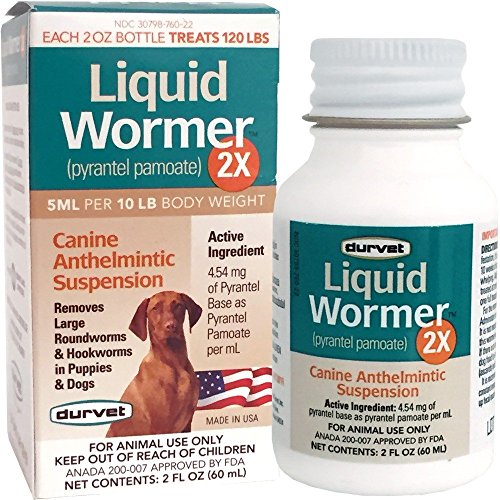Buying Guide for the Best Dog Wormers
Choosing the right dog wormer is crucial for maintaining your pet's health and well-being. Worm infestations can lead to serious health issues, so it's important to select a product that effectively targets the specific type of worms your dog may have. When picking a dog wormer, consider the type of worms it treats, the form of the medication, the dosage, and the age and weight of your dog. Always consult with your veterinarian before starting any new treatment to ensure it's safe and appropriate for your pet.Type of Worms TreatedDifferent wormers target different types of worms, such as roundworms, tapeworms, hookworms, and whipworms. It's important to know which type of worms your dog is infected with or at risk for. Some wormers are broad-spectrum and can treat multiple types of worms, while others are more specific. If you're unsure, a broad-spectrum wormer is often a good choice, but consulting with your vet can provide the best guidance.
Form of MedicationDog wormers come in various forms, including tablets, chewables, liquids, and topical treatments. The form you choose can depend on your dog's preferences and ease of administration. Tablets and chewables are often flavored to make them more palatable, while liquids can be mixed with food. Topical treatments are applied to the skin and can be a good option for dogs that are difficult to medicate orally. Consider your dog's behavior and what form they are most likely to accept.
DosageThe correct dosage of a dog wormer is crucial for its effectiveness and safety. Dosage is typically based on your dog's weight and age. Always follow the manufacturer's instructions and your vet's recommendations. Overdosing can be harmful, while underdosing may not effectively treat the infestation. If your dog is a puppy, senior, or has any health issues, special dosage considerations may be needed.
Age and Weight of DogDifferent wormers are formulated for different age groups and weights. Puppies, adult dogs, and senior dogs may require different treatments. Additionally, the weight of your dog will determine the appropriate dosage. Always check the product label to ensure it is suitable for your dog's age and weight. For growing puppies, you may need to adjust the dosage as they grow, so regular check-ups with your vet are important.
